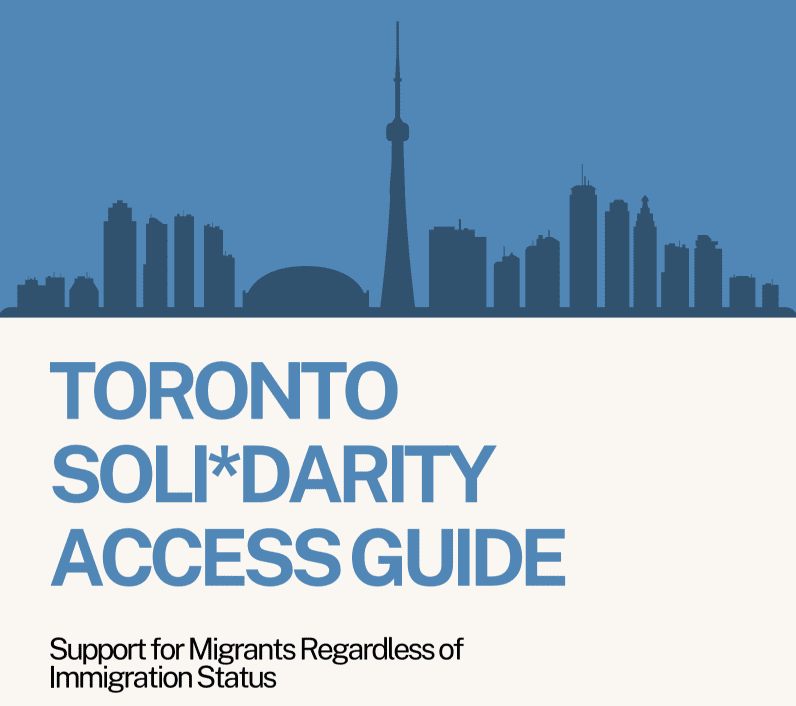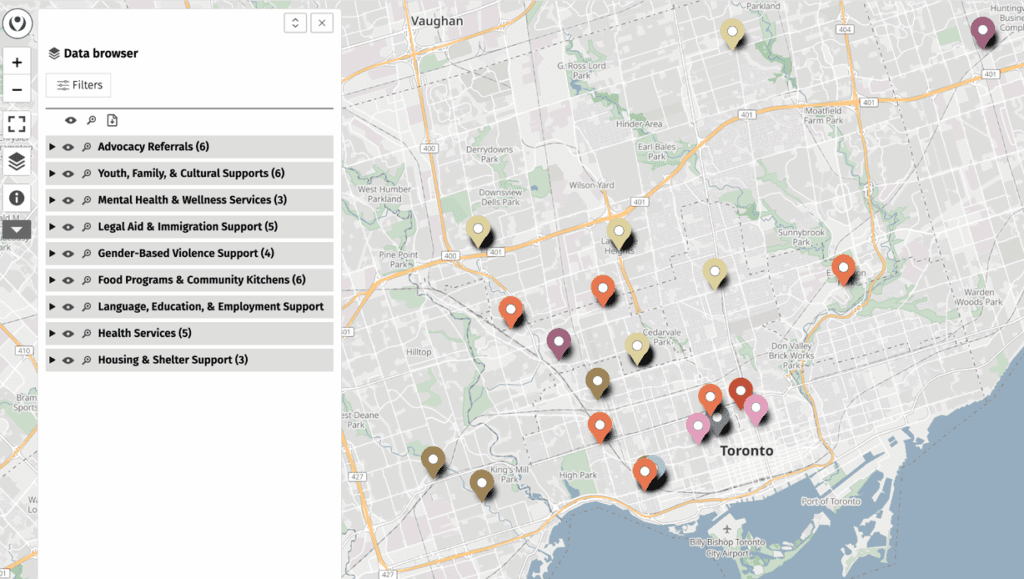Author: Vida Carranza Capote

In 2013, the City of Toronto adopted the Access TO policy, positioning itself as a “Sanctuary City”, the first in Canada to make such a commitment. This policy was meant to ensure that all Toronto residents, regardless of immigration status, could access municipal services without fear of being asked about their status or having their information shared with federal immigration enforcement. The vision was bold and hopeful: a city where no one would be denied care, shelter, or support due to where they were born or how they arrived.
More than a decade later, there remains a gap between what the policy promises and how it plays out in everyday life. Due to funding restrictions, inconsistent application of the policy, and various service delivery barriers, the process of accessing services for immigrants with precarious status is often filled with confusion, fear, and exclusion.
The Soli*City team, with the support and guidance of our community partners, has been working to develop the Toronto Soli*darity Access Guide in direct response to the realities faced by precarious status immigrants in the city. We focused on including low-barrier services that offer services regardless of immigration status, do not require an Ontario Health Insurance Plan (OHIP) card or identification, and are grounded in community care. The guide includes service categories like health, mental health, legal aid, housing support, food access, gender-based violence support, youth services, and more. The digital version of the Soli*darity Access Guide includes an interactive map that allows users to easily locate nearby services by category. Designed to be mobile-friendly and intuitive, the map helps precarious status residents find safe, accessible support in their area.

Creating this guide was a months-long process involving direct outreach. We connected with staff across dozens of organizations, calling, emailing, and following up to verify intake practices and clarify often ambiguous policies. Along the way, we witnessed what solidarity can look like in action. Staff took time to engage with our questions and shared candid insights into the barriers faced by undocumented clients. Ultimately, we compiled a list of over 25 organizations across Toronto that are committed to providing services to all residents, regardless of immigration status.
We are especially grateful to the FCJ Refugee Centre and the MRCC, whose early guidance and insights helped shape our project. Their longstanding expertise in supporting undocumented communities played a foundational role in developing this guide.
The Toronto Soli*darity Access Guide is available in both print and digital formats to meet diverse accessibility needs. The digital version includes an interactive map for easy navigation, while the print version will be distributed through partnering solidarity organizations across Toronto to share directly with the communities they support.
We hope this guide will become a trusted tool for anyone navigating or supporting others through Toronto’s often confusing service landscape. It will offer clear and verified information on services and help frontline workers locate resources to support clients within their organizations.
In a moment when sanctuary status is often symbolic and threatened by political shifts, community-led tools like this are essential. They remind us that protection doesn’t come from policy alone; it comes from networks of care, solidarity, and collective action.
Sanctuary is about creating systems where people feel safe, valued, and supported, regardless of the documents they carry. It means making sure undocumented people aren’t just surviving but can live, work, rest, and belong.
We invite you to read the guide, share it with your networks, use it in your organization, and help us make it better. Because a real sanctuary is not a one-time policy decision, it’s an ongoing practice and commitment.
Leny Rose Simbre is a community-based researcher and advocate specializing in migrant justice, care work, and temporary labour migration. She is a graduate student in Immigration and Settlement Studies at Toronto Metropolitan University, a research assistant with the Soli*City partnership, and a member of the 2024–2025 Bridging Divides Student Cohort. Leny’s dedicated contributions were instrumental in shaping the Toronto Soli*Darity Access Guide.
Vida Carranza Capote is a graduate student in Immigration and Settlement Studies at Toronto Metropolitan University, a research assistant with the SoliCity Partnership project, and a member of the 2024–2025 Bridging Divides Student Cohort. With a background in sociology and emerging experience in community-based approaches, her work focuses on migrant health, precarious status, and equitable service access. As part of the SoliCity research team, Vida collaborated closely with community partners to develop the Toronto Soli*Darity Access Guide.

